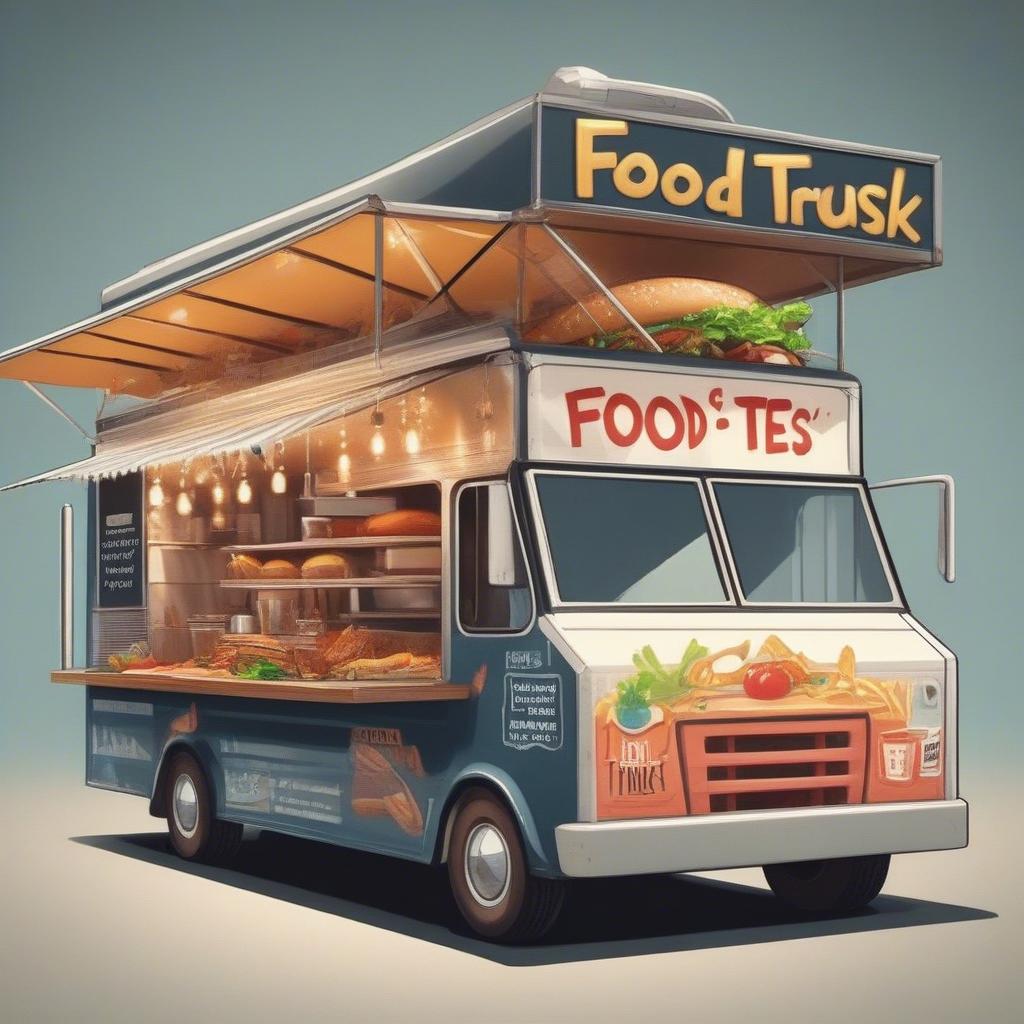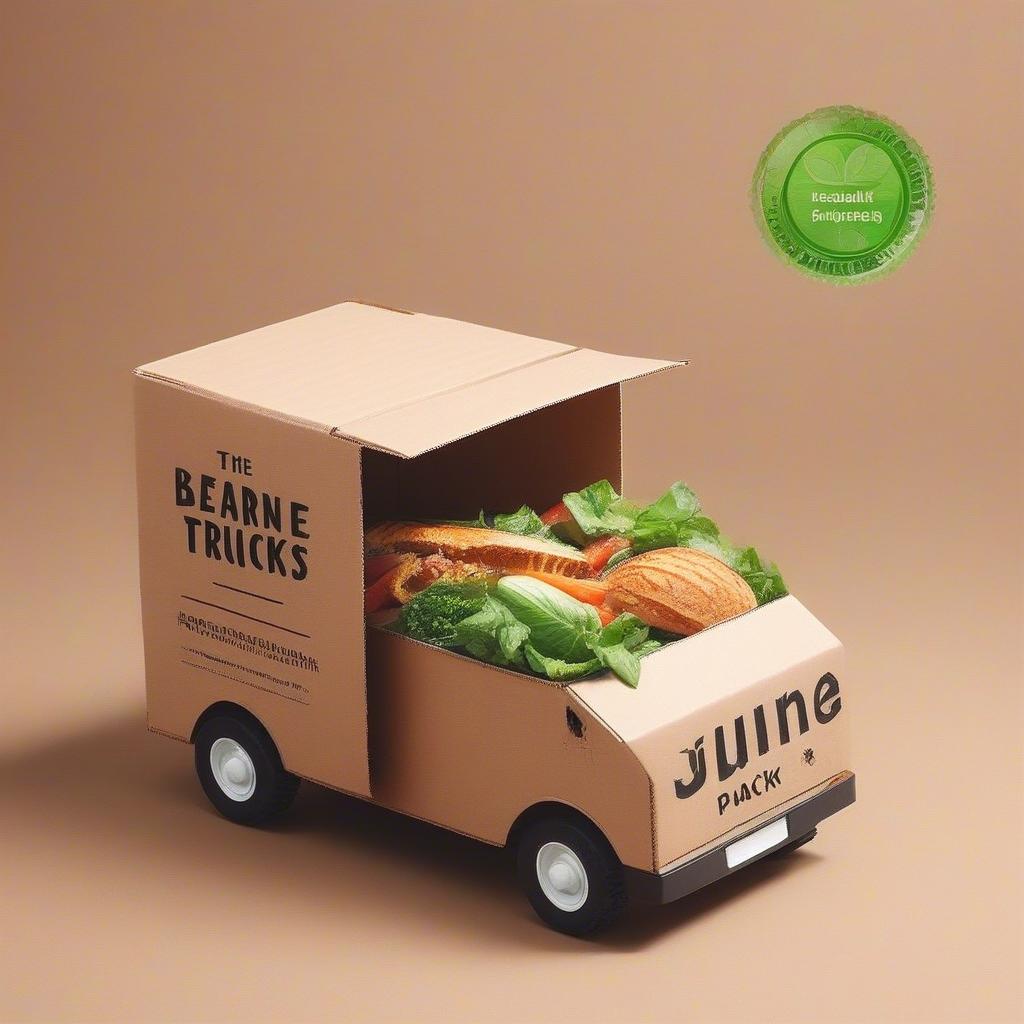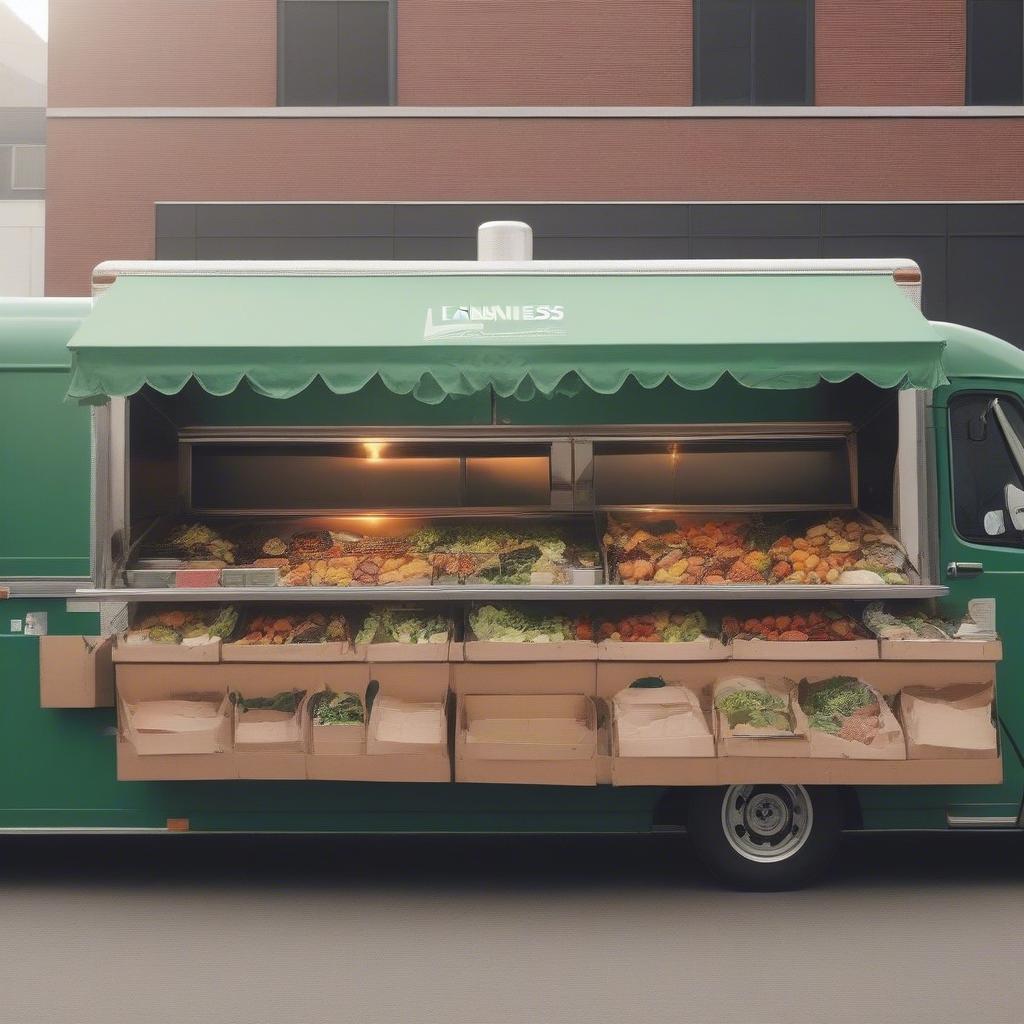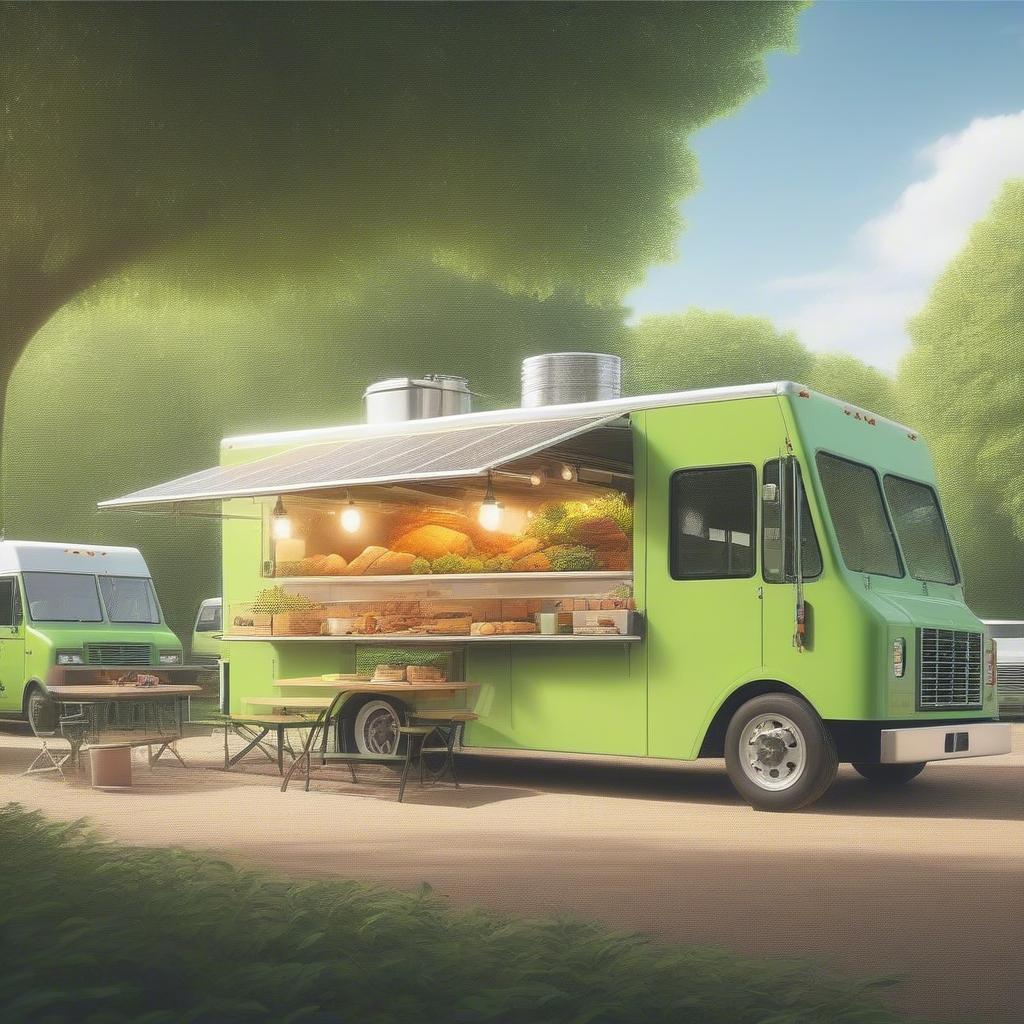
Buying a food truck is an exciting venture, a dream for many aspiring entrepreneurs. The allure of mobile culinary freedom, the open road, and the potential to build a thriving business are powerful draws. However, this dream can quickly turn sour if you fall into common pitfalls. This article will guide you through the most critical mistakes people make when buying a food truck, offering practical advice to ensure your journey is a smooth (and tasty!) success. We’ll help you avoid the heartache and financial strain that come with these errors so you can focus on what you do best: creating amazing food. Let’s dive in and learn how to make a smart food truck purchase.
Mistake #1: Rushing the Research and Planning Phase
Jumping in headfirst without adequate preparation is a recipe for disaster, especially in the complex world of mobile food vending. This is perhaps the biggest of all truck mistakes.
The “Shiny Object” Syndrome
Many aspiring food truck owners get captivated by a beautiful, fully equipped truck they see online or in person. They envision themselves immediately serving crowds and making a fortune. This “shiny object” syndrome blinds them to the practicalities and often leads to impulsive decisions.
Why it’s a mistake: This approach ignores crucial aspects like:
- Your Target Market: Who are you trying to reach? What are their preferences? How will you position your menu to appeal to them? Are you aiming for the lunchtime office crowd, late-night bar-goers, or family events?
- Menu Development: Is the truck’s existing kitchen setup suitable for your menu? Do you need specialized equipment or more refrigeration space? Failing to account for this can lead to significant and costly modifications.
- Location Strategy: Where will you operate? Different locations have different regulations and permit requirements. Have you scouted ideal spots or understood the local market’s need for your cuisine?
- Budgeting: Have you accurately accounted for all costs, including insurance, permits, supplies, and operational expenses? Underestimating these can cause early cash flow problems.
- Business Plan: A detailed business plan, including financial projections, is your roadmap to success. Skipping this makes it easy to go off-course quickly.
Actionable Steps: Creating a Solid Foundation
Before even looking at a food truck, take these concrete steps:
- Market Research: Conduct thorough market research to identify your target audience, assess local competition, and determine the demand for your menu concept. Visit other food trucks, attend local events, and engage with potential customers to gain insights.
- Develop Your Menu: Finalize your menu concept before even starting your truck search. Make sure you are comfortable with the menu items and that you can execute them efficiently in the confines of a truck.
- Create a Detailed Budget: Calculate all startup and operational costs. Be realistic about revenue projections. Consider using a financial planning template (more on this later).
- Write a Business Plan: A solid business plan is not just for securing loans. It helps you clarify your vision, set goals, and track your progress.
- Research Regulations and Permits: Contact your local health department and city hall to understand specific requirements for food trucks in your area, this will be crucial to have in mind while buying a food truck. Ensure you understand zoning laws, permitting processes, and other regulations before committing to a truck.
Mistake #2: Neglecting a Thorough Inspection of the Truck
It’s easy to get swept away by the aesthetics of a food truck, but underneath that shiny exterior, there could be hidden problems that could cost you a fortune to repair, or could even make your truck unsuitable for your menu needs. This is a critical area where many people making a food truck purchase fall short.
The Pitfalls of a Superficial Inspection
Many buyers only glance at the truck’s exterior, pay a little attention to the kitchen equipment and then make an offer. That approach is a recipe for disaster. Common issues include:
- Mechanical Problems: Issues with the engine, transmission, and other vital parts can leave you stranded or lead to costly repairs.
- Electrical Problems: Faulty wiring or an inadequate power system can pose a safety risk and lead to equipment malfunctions.
- Plumbing Problems: Leaks or blockages can create significant issues with sanitation and water access, it can be a hidden issue to watch for when buying a food truck.
- Equipment Malfunctions: Damaged or poorly maintained equipment can hinder your efficiency and impact food quality.
- Structural Issues: Rust, leaks, or other structural damage can undermine the truck’s integrity and safety.
Actionable Steps: A Comprehensive Inspection Checklist
Avoid these issues by conducting a comprehensive inspection of the truck. Here’s what to look for:
- Mechanical Inspection:
- Have a qualified mechanic inspect the engine, transmission, brakes, tires, and other mechanical components.
- Check for fluid leaks or signs of wear and tear.
- Look for rust or corrosion under the chassis, this is common in mobile food trucks.
- Ask for maintenance records and any warranties.
- Electrical Inspection:
- Check the wiring and electrical panels for damage or corrosion.
- Ensure that the generator (if applicable) is functioning correctly and can handle your power needs.
- Test all outlets and light fixtures.
- Ensure all wiring is up to code and has been approved by an electrical engineer.
- Plumbing Inspection:
- Test all faucets and sinks for leaks.
- Check the hot water heater and ensure it functions correctly.
- Inspect the holding tanks (fresh water and wastewater) for leaks and cracks.
- Make sure the drainage system is clear and functional.
- Equipment Inspection:
- Test all cooking equipment (ovens, fryers, grills, etc.) to ensure they are in proper working order.
- Check refrigeration units to ensure they reach and maintain safe food storage temperatures.
- Verify the functionality of any other equipment such as POS systems, etc.
- Structural Inspection:
- Examine the exterior for rust, dents, or other damage.
- Check the roof for leaks.
- Inspect the interior walls, ceiling, and flooring for damage or mold.
- Ensure all doors and windows close properly and are secure.
Tip: If you’re not comfortable with these types of inspections, hire a professional vehicle inspector who specializes in food trucks. It’s a small investment that can save you from costly issues down the road, especially when it comes to buying a food truck.
Mistake #3: Overlooking Legal and Regulatory Compliance
Failing to understand and comply with all legal and regulatory requirements can lead to fines, operational shutdowns, and even lawsuits. This is a crucial aspect of making a safe and legal food truck purchase.
The Complex World of Permits and Regulations
Regulations for food trucks vary widely by location. Some common areas of concern include:
- Health Permits: Each locality will have health and safety requirements including guidelines regarding food storage and preparation.
- Business Licenses: You’ll need the correct licenses to operate your food business within your area.
- Zoning Regulations: You’ll need to understand the locations you are permitted to operate in your jurisdiction.
- Fire Safety Regulations: Your truck must comply with fire codes.
- Employee Permits: If you plan to employ others, you need the right permits to do so.
- Parking and Operating Permits: These permits dictate where and when you can operate, and often have associated fees.
Ignoring these regulations can result in:
- Fines and Penalties: Many municipalities have strict penalties for non-compliance.
- Forced Shutdowns: If you are found in violation, you will have to close until you get the relevant permits.
- Legal Issues: You may face lawsuits if you are not compliant with all relevant food laws.
Actionable Steps: Staying on the Right Side of the Law
- Research Local Requirements: Contact your local health department, city hall, and business licensing office to find out the specific regulations in your area.
- Consult with a Lawyer: If needed, get legal advice to ensure you understand your obligations.
- Develop a Compliance Plan: Create a document outlining all necessary permits and approvals and keep track of when each needs renewal.
- Stay Updated: Laws and regulations change. Make sure you are staying current with any new requirements.
- Document Everything: Keep copies of all permits, licenses, and certifications on hand.
- Join Local Food Truck Associations: Engage with industry professionals in your area. These groups often provide valuable regulatory insights.
Mistake #4: Misunderstanding the Financial Realities
Underestimating the costs of operation and overestimating potential revenue is a common mistake that can lead to a quick financial downfall. This is an essential area to understand when buying a food truck.
The Hidden Costs of Food Truck Ownership
Beyond the initial purchase price, many other costs associated with owning a food truck can quickly add up. Overlooking these can undermine your profitability. Common financial pitfalls include:
- Operating Expenses: Fuel, propane, ingredients, packaging, maintenance, and repairs can eat into your budget if not properly accounted for.
- Insurance: Food truck insurance can be costly, but it’s a crucial necessity.
- Permit Fees: Many municipalities require various permits and renewal fees, often varying significantly from one area to another.
- Marketing Costs: Promoting your business can be costly, especially in the early days.
- Emergency Funds: Unexpected equipment failures or repairs can derail a budget if you have not put aside an emergency fund.
- Cash Flow Management: Managing cash flow can be tricky, particularly in the early months as you establish a regular customer base.
- Overreliance on Loans: Taking out too much money can lead to unsustainable payments and put you into debt if your sales fall short of expectations.
Actionable Steps: Creating a Realistic Financial Plan
- Create a Detailed Budget: Estimate all startup and ongoing costs, including equipment repairs, fuel, utilities, insurance, inventory, and marketing. Utilize financial planning tools and templates (see our section on Learn Business below).
- Track Your Spending: Keep accurate records of all expenses. Use accounting software or simple spreadsheets.
- Project Your Revenue: Be conservative when estimating revenue. Research industry benchmarks and factor in the potential for slow days or unexpected disruptions.
- Create a Break-Even Analysis: Determine how much revenue you need to cover all of your expenses.
- Plan for Unexpected Expenses: Set aside an emergency fund for unplanned repairs or downtime.
- Monitor Cash Flow Regularly: Ensure you have enough working capital to meet your obligations.
- Revisit and Adjust Your Budget Regularly: Review your budget monthly to ensure you are staying on track with your expectations.
Mistake #5: Failing to Plan for Growth
Many people get so caught up in getting their food truck up and running that they forget to plan for the future. This is often a result of not having a business plan, making scaling difficult, which can make even successful food trucks stagnant, preventing them from reaching their full potential.
The Stagnation Trap
Without a long-term vision, your business can stagnate, leading to missed opportunities and a loss of momentum. Common issues include:
- Lack of Scalability: Not having a plan for growth makes it difficult to expand your operations.
- Inability to Adapt: The food industry is constantly evolving. Failing to adapt to changing trends and customer preferences leads to decline.
- Missed Opportunities: Without a long-term strategy, you can miss important opportunities for expansion, partnerships, or new revenue streams.
- Loss of Motivation: When the business feels stagnant, it’s easy to lose your motivation.
Actionable Steps: Building a Sustainable Business
- Set Long-Term Goals: Determine where you see your business in one, three, or five years. Are you looking to open a brick-and-mortar location? Or, have several food trucks operating?
- Develop a Growth Strategy: Identify strategies for expanding your menu, your operating hours, your location coverage, or your fleet of food trucks.
- Build a Brand: Cultivate a strong and recognizable brand. This involves your name, your logo, your social media presence, and the overall experience of your customers.
- Focus on Customer Loyalty: Implement a loyalty program to retain customers.
- Leverage Technology: Utilize online ordering, social media, and other digital tools to expand your reach and engage with your audience.
- Explore Partnerships: Collaborate with local businesses or event organizers to increase your visibility and reach new markets.
- Invest in Your Team: Hire, train, and develop a competent and dedicated team.
Learn Business: Your Partner in Food Truck Success
At Learn Business, we understand the challenges and opportunities that come with starting and growing a food truck business. We provide aspiring entrepreneurs with the tools, knowledge, and guidance necessary to succeed. We help businesses by offering guidance and templates tailored to the businesses.
How Learn Business Supports Your Food Truck Journey
Here’s how Learn Business can help you navigate the process of buying a food truck and running a successful operation:
- Business Plan Templates: Our comprehensive business plan templates provide the structure you need to develop a solid business plan, and is tailored specifically to food trucks.
- Financial Planning Tools: Our financial planning templates help you create detailed budgets, track your expenses, and make sound financial decisions, so you are confident you have made the right food truck purchase .
- Marketing Guides: Access our guides for effective marketing strategies tailored specifically for food trucks.
- Operational Checklists: We offer checklists for all aspects of food truck operations, from daily setup to equipment maintenance and inspections.
- Legal Compliance Resources: Gain access to guides for permits and regulatory compliance to avoid penalties and costly shutdowns.
By using the tools and resources offered by Learn Business, you are well on your way to having a thriving food truck business.
The Value of Preparation
Ultimately, avoiding the common mistakes when buying a food truck is about proper preparation and informed decision-making. By investing the time upfront to conduct thorough research, perform meticulous inspections, understand all legal and regulatory requirements, create a solid financial plan, and build a long-term growth strategy, you’ll put yourself on a path to success. Remember, a food truck purchase is more than just buying a vehicle; it is an investment in your future. By avoiding these common mistakes, and with a little hard work, the future can be bright. Let Learn Business be your partner in your journey.



Leave a Reply